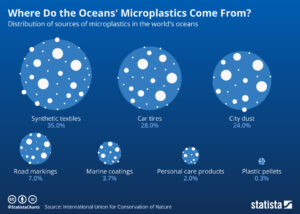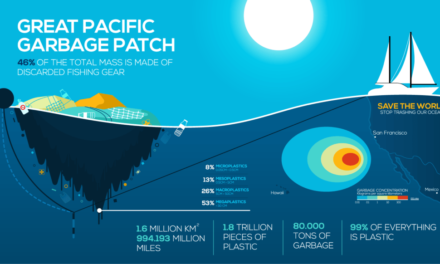Experiments have shown that microplastics can damage aquatic creatures, including the turtles and birds that eat from our oceans.
You can understand that microplastics can block digestive tracts, diminish animals’ urge to eat. These microplastics can often alter feeding behavior.
All of these symptoms have been shown to reduce growth and reproductive output. With their stomachs stuffed with plastic, some species can starve and die.
Can we see all of the harm?
In addition to the mechanical effects, microplastics have chemical impacts, because free-floating pollutants that wash off the land and into our seas. Polychlorinated biphenyls (PCBs), polycyclic aromatic hydrocarbons (PAHs), and heavy metals—tend to adhere to their surfaces. Poisons that are slowly killing our ocean animals, plants and coral. Things like coral and jellyfish are often considered to live on the border between animal and vegetable, but they all suffer.
Considering this, you can see that there is an obvious threat to the welfare, and lives, of these animals and vegetables. You will probably also become aware that these microplastics are transferred into the food chain and into the food that YOU eat. You are likely to be eating some of the plastic that you discard every day.
A million times worse than we thought….
Why is the Ocean full of Microplastics?
When you think about microplastics in the ocean, you might think that people on ships are throwing lots of trash overboard. However, the majority of microplastics come from the cities of the world. Rain leads to waterflow, which leads to ditches, which lead to storm drains, which lead to rivers, which lead to the ocean.
Your plastic bottle can start off thrown out of a car in Las Vegas and end up in the stomach of a turtle in the Gulf of Mexico. Not from a reckless fisherman in the ocean, but from a careless tourist in a Nevada desert city.
Don’t buy plastic. Don’t discard plastic. Recycle plastic.
Even in land fill, plastic is better than in the ocean. But, even better, don’t buy products packaged in plastic. Buy glass contained products or re-use your containers.
The vegetables from the grocery store don’t need to go in a bag. It might be more convenient for you, but it isn’t more convenient for the Turtle that gets tangled up in the same bag.
Companies like Ocean Sole are actively removing plastics from the ocean.




